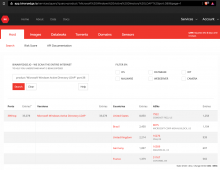Singapore spotlights OT security, unveils security roadmap focusing on infrastructure
Singapore is setting up a panel comprising global experts to offer advice on safeguarding its operational technology (OT) systems and has unveiled the country's latest cybersecurity blueprint, focusing on digital infrastructures and cyber activities. It also is hoping to rope in other Asean nations to recognise a Cybersecurity Labelling Scheme (CLS) that rates the level of security for smart devices, such as home routers and smart home hubs.













































































